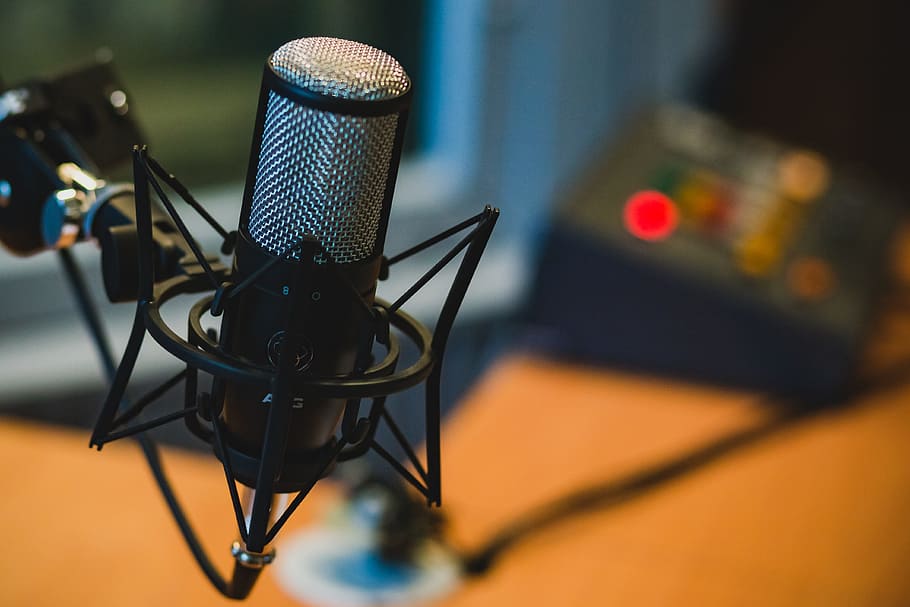Podcasting has taken the world by storm, with diverse voices and stories filling the digital airwaves. But have you ever considered the incredible potential of a Community History Podcast rooted in the wealth of your library’s historical archives? Many libraries have created studio rooms for their patrons; however, how many take advantage of it themselves? The podcast platform can be a fantastic engagement tool by bringing the vibrant stories of your community’s past to life. Not only does it allow for wider access to these captivating narratives, but it also offers an avenue for patrons to get involved and encourage the community to explore the Community History Archive to engage with their local history.
A Community History Podcast can leverage the fascinating stories found in the pages of the Community History Archives and patron contributions to create engaging audio episodes. The podcast will provide listeners with an entertaining and informative exploration of their community’s past by covering a broad spectrum of themes – from detailed profiles of notable figures to deep dives into significant events or eras.
The beauty of a Community History Podcast lies in its inclusivity and interactivity. Patrons can suggest episode topics, contribute to research, or even appear as guest speakers, sharing their insights or personal connections to the topics discussed.
The first step to launching your Community History Podcast is to gather a dedicated team. This can include library staff, volunteers, and enthusiastic patrons. Assign roles based on individual skills and interests, including research, scripting, recording, editing, and promoting the podcast.
Next, use the treasure trove of information within your Community History Archives to brainstorm potential episode themes. This is where patron involvement can be invaluable. Encourage them to suggest topics or share interesting articles they’ve found in the archives.
Once you’ve established your topics and completed your research, it’s time to script your episodes. Consider incorporating different formats like interviews, narrative storytelling, or panel discussions. Include anecdotes and personal stories to bring the history to life.
Beyond just listening to the podcast, patrons can get involved in many ways. They could suggest themes for future episodes, conduct research for an upcoming topic, or share personal stories or insights related to the episode’s theme. You could even invite them to appear as guest speakers, further fostering a sense of ownership and engagement.
Promote your podcast through various channels, including your library’s website, social media platforms, newsletters, and local media. Hosting a launch event at your library can generate excitement and attract potential listeners.
Choosing a catchy title for your podcast is essential as it’s the first thing potential listeners see. Here are a few ideas to inspire you:
- “Tales From The Archive”
- “Putting Our Past In Perspective”
- “Our Favorite Past-Time”
- “The Rest Of The Story”
- “Community History Chronicles”
- “Did You Know….? “
- “Do You Remember…?”
- “I remember when…”
- “Providing Patrons Past Papers Presently”
- “Our Town, Our History”
- “The Past? Stick It In Your Ear “
- “Connecting The Dots “
- “Podcasting Pasting The Past”
- “Archive Anywhere”
- “From The Pages Of The Past”
- “Raiders Of The Lost Arc-hive”
- “Our Past, In The Present”
- “The Past In Pixels”
- “Researching The Region “
Launching a Community History Podcast offers numerous benefits. It enriches the community’s understanding of their shared heritage, fosters engagement and participation, and expands the reach of your library’s resources beyond its physical walls. It also provides a platform for diverse voices, ensuring that the narrative of your community’s history is rich, inclusive, and multifaceted.
Libraries natonwide have added a podcast studio or recording booth to their spaces to encourage content creation and empower patrons to explore their creative skills, such as scripting, recording, and sound editing. This innovative approach supports the library’s mission as a community hub for learning, creativity, and access to information, reinforcing its relevance in an increasingly digital world.
If your library doesn’t have a studio or recording booth, producing a Community History Podcast is easy to do, even with limited resources. Remember, podcasting doesn’t have to be perfect right out of the gate. It’s a learning process. Start with what you have, learn as you go, and continuously improve. With time and experience, your Community History Podcast will grow into a beloved resource for your community. All you need to get started is:
- A Microphone: A USB microphone is a cost-effective choice for beginners. It connects directly to your computer and provides good sound quality. The Audio-Technica ATR2100x-USB is a popular choice among podcasters.
- Headphones: A good pair of closed-back headphones is essential to monitor sound quality. These help isolate the sound and give you a clear sense of what the recording sounds like.
- Pop Filter: A pop filter reduces or eliminates ‘popping’ sounds made by the mouth when pronouncing certain words. They’re relatively inexpensive and can be attached to the microphone stand.
- Quiet Room: Find a quiet room with a minimal echo for recording. Carpets, drapes, or even bookshelves can help reduce echo. If you’re on a tight budget, recording in a closet full of books always is an option.
- Recording and Editing Software: Audacity is a free, open-source software suitable for beginners. It allows you to record and edit your podcast. It’s available for both Windows and Mac.
- Hosting Platform: Anchor is a free podcast hosting platform that’s great for beginners. It allows you to host unlimited episodes and distributes your podcast to all major listening platforms. It also has a simple built-in recording and editing tool.
To ensure the success of your Community History Podcast, the key is to engage more listeners and continue to grow this unique community engagement initiative. It involves:
Understanding Your Audience:
Understanding your audience is the first key to harnessing your podcast’s success. Who is listening to your podcast, and why? Which episodes have been most popular, and what feedback have you received? This can be done through various methods such as online surveys, social media feedback, email interactions, and even face-to-face discussions during library events.
Understanding your audience helps you tailor your content to meet their interests, ensuring your podcast remains relevant and engaging. It also aids in identifying gaps in your listenership that you may want to target in future promotional efforts.
Fostering Listener Engagement:
Engaging your listeners is crucial for a successful podcast. Encourage your listeners to get involved by contributing ideas for future episodes, sharing their own historical findings or personal anecdotes, or even featuring as guest speakers. This participatory approach transforms your podcast from a one-way transmission into an interactive dialogue, fostering a sense of ownership and engagement among listeners.
You can also create engagement opportunities outside the podcast itself. For instance, you can host live podcast recording events at the library, organize meet-and-greets with podcast hosts and featured guests, or hold special events or discussions related to podcast topics.
Ensuring Content Diversity:
Your Community History Archives are a treasure trove of diverse stories and perspectives. Ensure that your podcast reflects this diversity. Cover a broad spectrum of topics, from major historical events to profiles of notable figures, from deep dives into specific eras to explorations of cultural shifts. Including a variety of voices and perspectives in your podcast ensures a rich, inclusive narrative of your community’s history.
Leveraging Social Media and Promotions:
To grow your podcast, you need to reach potential listeners where they are. Leverage your library’s social media platforms to promote new episodes, share behind-the-scenes content, and interact with your audience. Use eye-catching visuals, engaging captions, and relevant hashtags to extend your reach.
Consider partnering with local businesses, schools, or community groups to broaden your promotional efforts. You could also hold contests or offer incentives, like featuring a listener’s story or giving shout-outs, to encourage shares and recommendations.
Monitoring and Adapting:
Lastly, remember that successful podcasting is a dynamic process. Regularly review your podcast’s performance using analytics tools, listener feedback, and your own observations. What’s working well? What could be improved? What new opportunities have arisen? Adapt your podcast accordingly, and don’t be afraid to try new things.
Harnessing the success of your Community History Podcast is a multi-faceted process, requiring understanding your audience, fostering engagement, ensuring content diversity, leveraging promotions, and continually monitoring and adapting. By successfully managing these aspects, you can ensure your podcast continues to grow and thrive, bringing the captivating stories of your community’s past to an ever-widening audience.


